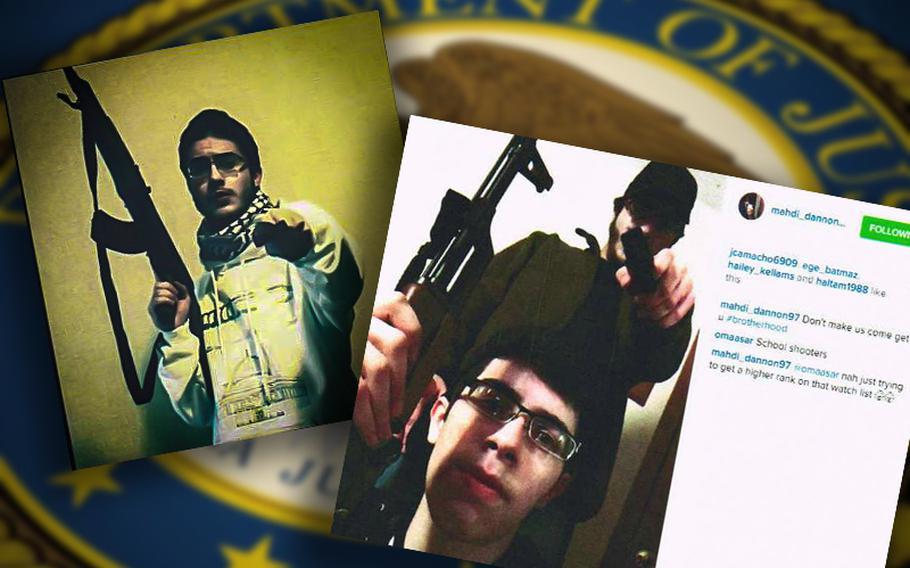
Indiana man joins brother in prison after attempt to sell ‘ghost guns’ to ISIS
An Indiana man who teamed up with his brother to try and sell arms to the Islamic State group has been sentenced to more than 16 years in prison for his crimes, the Justice Department said.
Moyad Dannon’s sentence Wednesday was about four years less than his brother, Mahde Dannon, received in 2021, both for providing material support to a foreign terrorist organization.
“The defendants in this case fused together two grave threats to Americans’ security by attempting to support a brutal terrorist organization through the illicit manufacture of ‘ghost guns,’” Lisa Monaco, deputy attorney general, said in a statement.
In June 2018, the brothers devised a plan to deliver stolen firearms to a convicted felon who was cooperating with the FBI, according to court documents.
The two brothers sold several illegally obtained firearms to the FBI informant, including .223-caliber semi-automatic rifles which were pieced together by ordering gun parts separately online. Such weapons are known as ghost guns because they are unregistered and difficult to trace.
They had agreed to build 55 ghost guns, and sell them to an uncover agent and the informant along the U.S. southwestern border, according to the Justice Department statement.
During conversations with the agent, Moyad Dannon talked of leaving his home in Fishers, a suburb of Indianapolis, to join ISIS fighters in Syria, the statement said.
They initially built five rifles in 2019 for immediate shipment to ISIS members fighting in Syria. They were immediately arrested following the arranged sale, according to court documents.
After the arrest, the FBI found a flash drive on Moyad Dannon’s keychain with roughly 16 gigabytes of ISIS materials, including videos of ISIS snipers killing U.S. military personnel. Other videos included ISIS militants conducting violent acts against hostages and civilians.
The brothers’ sympathies were readily apparent on social media well before they began making rifles.
The Justice Department’s initial complaint includes a 2015 post by Mahde Dannon with pictures of each of them holding rifles, and a comment: “Just trying to get higher on that watch list.”





